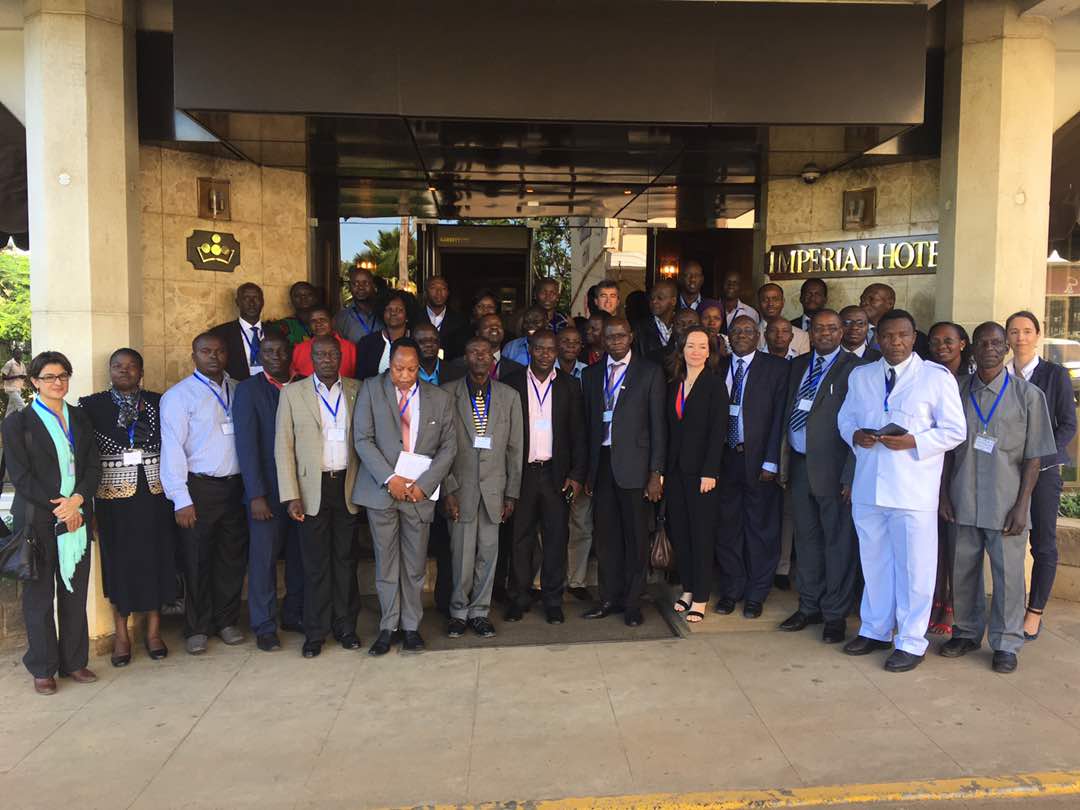Transboundary benefit-sharing: discussing the opportunities for the Sio-Malaba-Malakisi basin
The Sio-Malaba-Malakisi (SMM) basin, shared between Kenya and Uganda, faces constraints from reduced water quality and quantity in large parts of the river catchments. Despite the potential for development and investment, the basin remains underdeveloped, limiting economic growth.

Photo: ©IUCN/ESARO
The cooperation among the two riparian countries has over the years evolved to a formal establishment of a Project Management Unit and a Regional Project Steering Committee under the Nile Basin Initiative through the SMM River Basin Management Project. The two riparian countries, Kenya and Uganda have meanwhile also signed a Memorandum of Understanding that provides a framework for cooperation in the management and development of the basin.
“Transboundary water cooperation and governance is a must and not optional because it affects all the riparian countries of the Nile Basin” said Dr Callist Tindimugaya, SMM Riparian State Representative and Commissioner of Water Resources Planning and Regulation, Uganda.
A first Sio-Malaba-Malakisi basin stakeholders’ workshop was held in May 2017 in Kenya for the initiation of a Benefit Opportunities Assessment Dialogue. This workshop was attended by representatives from national and local government authorities, working in water, environment, energy and agriculture, as well as representatives from water users’ associations and NGOs active in the Lake Victoria and Nile Basins.
“The SMM is a vital resource in the region. The basin is more prone to degradation, degeneration and erosion due to human activities and climate change. Corrective measures are needed to restore the ecosystem” said Tom Waako, Nile Basin Initiative.
Based on the request from Kenya and Uganda and upon meeting the selection criteria, the SMM basin was selected as a demonstration basin under the project ‘Strengthening transboundary water governance and cooperation in the IGAD region’ which is implemented in partnership with the IUCN BRIDGE project, the UNECE Water Convention, and the IGAD Secretariat with funding from the U.S. Department of State and co-financing from the Swiss Agency for Development and Cooperation (see webstory).
“The workshop helped in improving participants’ understanding of transboundary water governance and the benefits of cooperation and benefit-sharing. Applying approaches from IUCN’s BRIDGE and the UNECE Water Convention Secretariat, capacity building modules and exercises supported further learning on benefit sharing within transboundary basins”, said John Owino, IUCN Water Programme Officer in Kenya.
Upcoming activities for the project include the need to move beyond infrastructure investment planning to also prioritize catchment restoration working across sectors, including through forest landscape restoration, to ensure the sustainability of water resources.
“Transboundary water cooperation requires high level intervention by decision makers who have to be convinced of the importance of the benefits that derive from cross border cooperation” concluded Chantal Demilecamps, Environmental Affairs Officer, UNECE.
***
For more information, please contact water@iucn.org



